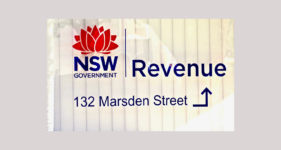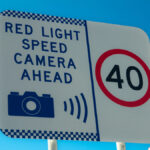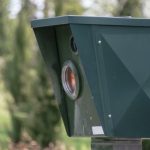What Happens If I Don’t Pay a Fine?

Sheriffs have attended cancer conwoman Belle Gibson’s home after the court issued an order in an effort to recoup fines of more than $500,000.
This is the second time the Victorian sheriff’s office has executed a warrant on Ms Gibson’s home since she was fined four years ago for breaching consumer laws.
Ms Gibson rose to fame as a wellness blogger, claiming she had cured herself of brain cancer using alternative therapies and nutrition. She produced a cookbook and an app which earned her $420,000.
In 2017, she was fined $410,00 by the Federal Court of Australia after Consumer Affairs in Victoria took legal action against her for ‘unconscionable conduct’ after it was revealed she never had brain cancer, and had misled the Australian public.
Many wonder why Ms Gibson has never been charged with the offence of fraud for obtaining a benefit by deception, although the Victorian Government remains relentless in its pursuit of the half a million dollar fine.
The fine continues to grow after accumulating costs and interest, and the Victorian Government is insistent on the money being repaid. The items seized by the sheriff’s office will be sold and the money will be deducted from the debt.
In New South Wales, the state government has similar powers. The laws in relation to fines are outlined in the NSW Fines Act 1996. All fines are managed by the state government agency, Revenue NSW.
What happens if I don’t pay a fine in NSW?
If you owe a fine that you don’t pay, you have several options.
Revenue NSW is the government department responsible for the recovery of fines issued throughout the state, for parking infringements, speeding, running a red light, or other minor criminal offences such as stealing, offensive behaviour, and intoxicated and disorderly conduct.
If you fail to make a payment by the due date, late fees can be applied to the fine. And if you continue not to pay the fine, these late fees and charges can increase over time.
If payment is made after the due date of the penalty reminder notice, further costs may apply.
Disputing the fine
If you believe that you have been unfairly fined, you can ask for a review of your fine. If such a review determines that you are still required to pay the fine, then you can ask to be put on a payment plan.
Can my fine be ‘written off’?
You can apply for your fine to be ‘written off’, although you must prove that you are facing serious financial difficulties or you have a medical issue or other serious problem that is impacting your life.
There are options to ‘pay off the fine’ by completing approved unpaid work, participating in work, or treatment programmes for alcohol and drug addiction.
Financial hardship
If you are suffering from severe financial duress, you can apply to have the fine discounted. Last July, the New South Wales Government introduced a new policy which means that people doing it tough financially – including those on Centrelink payments or other government pensions – can apply to have their penalties reduced.
Once you apply for the reduction, Revenue NSW conducts and assessment and will advise you of their decision once this assessment is complete. It may be that the agency determines you pay off the fine in other ways, or take time to do so on a flexible payment plan.
Garnishing your wages
Revenue NSW has the power to ask your employer to deduct money from your wages and can also ask your bank to remove money from your account to pay the fine.
Your employer can be taken to court for failing to comply or providing false information in these circumstances.
What’s more, if a garnishee order is issued, the costs are added to your fine.
Seizing property
Revenue NSW also has the ability to seize your property and sell it at auction if necessary, although this tends to be a last resort.
But it’s important to note that even if you agree to pay the fine after your belongings have been seized, then the Sheriff is not required to return any property already seized under a Property Seizure Order, and a Charge on Land, which is a form of security.
Disputing your fine in court
You can always dispute your fine in court if you have already had it reviewed by Revenue NSW and are not satisfied with the outcome.
However, it is important to note that the court has the discretion to increase the original fine if it believes it is just to do so.
For this reason, it’s important to seek professional legal advice before you make a decision.







